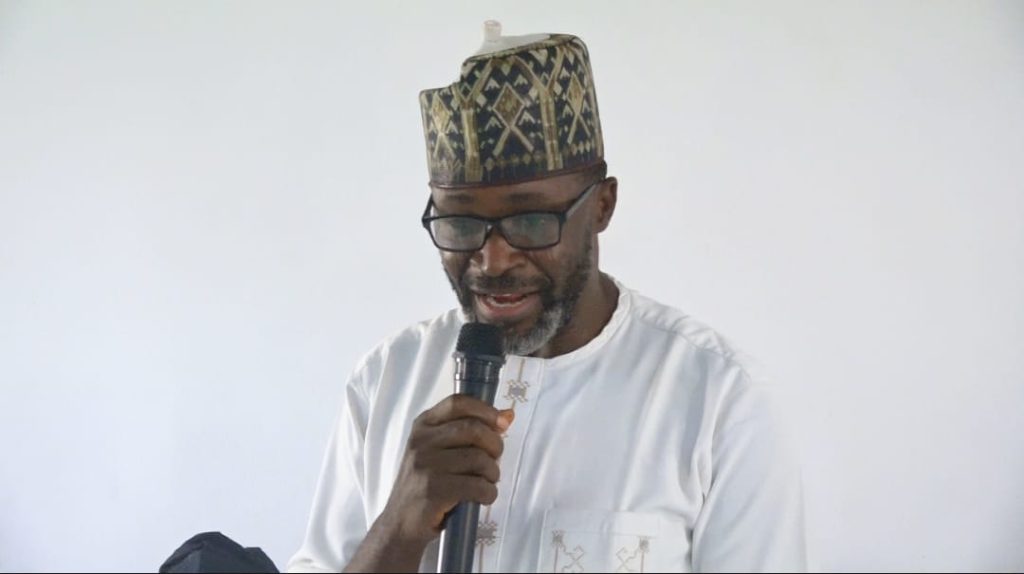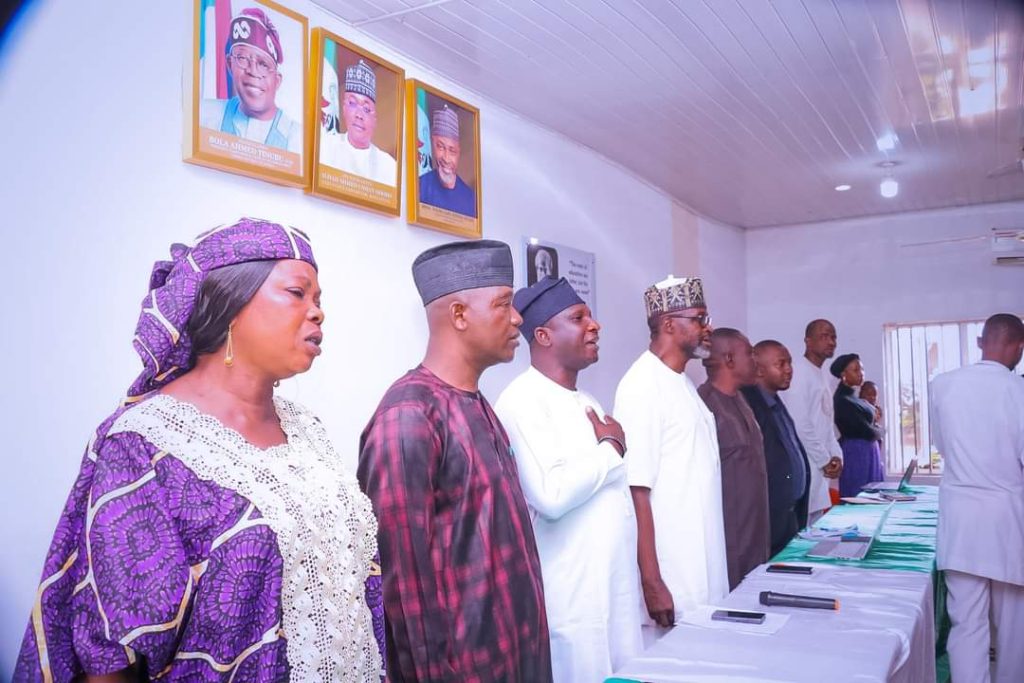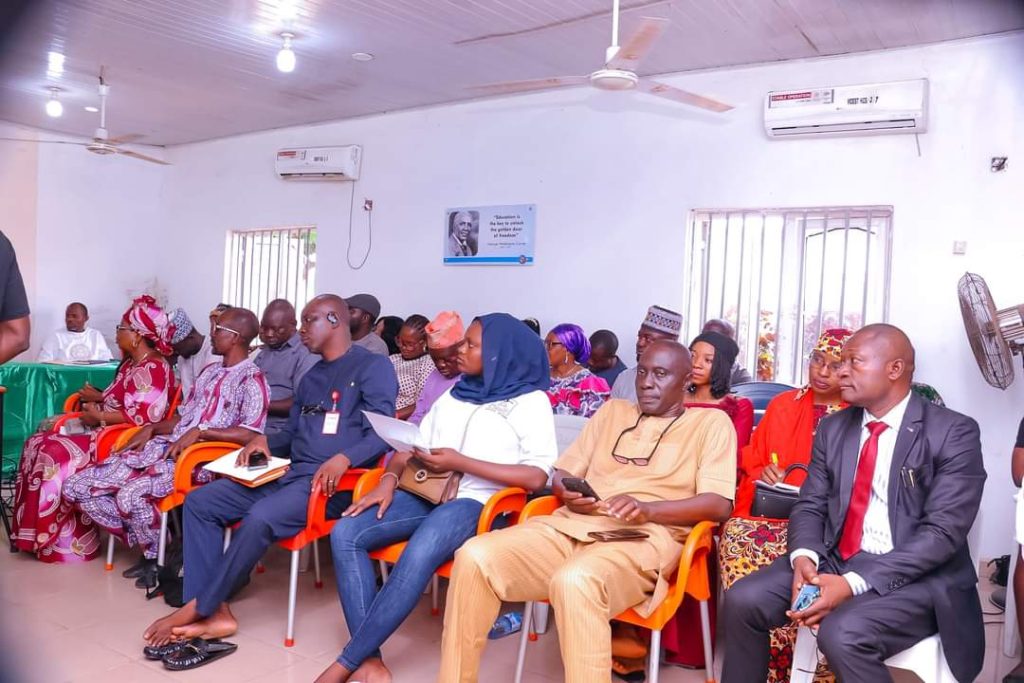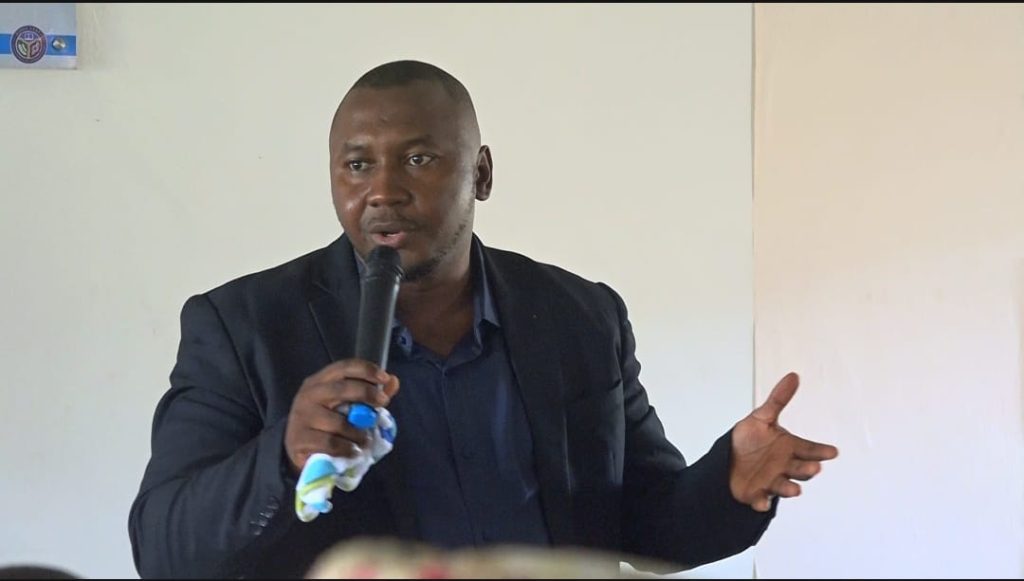Kogi to Collaborate with Gender Mobile Initiative to Tackle Sexual Harassment in Tertiary Institutions

Kogi State Government has expressed its readiness to partner with the Gender Mobile Initiative to reduce cases of sexual harassment and other vices in State’s owned-tertiary institutions through technology.
The Commissioner for Education, Hon Wemi Jones, disclosed this in Lokoja on Tuesday at a one-day stakeholders’ meeting with student leaders and heads of tertiary education institutions in the state. The meeting which was organized by the Ministry of Education and Gender Mobile Initiate was to, amongst other things interact on Dissemination, Adaptation, and Implementation of Anti-Sexual Harassment Policy in Tertiary Institutions in Kogi State.



Hon. Wemi Jones said the Ministry together with the organization would design a framework that will complement the existing policies of each public tertiary institution in respect to sexual harassment.
The Commissioner said sexual harassment has been endemic in the country because victims shy away from talking about it. He said the more victims talk about it, the easier it becomes to reduce the menace of sexual harassment especially in higher institutions. He noted that the present administration has put up machineries to apprehend anyone involved in sexual harassment in Kogi State.
“The objective of this meeting is to facilitate State level and adopt the model anti-sexual harassment policy and secure the buy-in of institutional Heads on integration of campus safety initiative framework.
“The Federal ministry of education has commenced a program with States Commissioner’s of education, Independent Corrupt Practices and Other Related Offences Commission (ICPC) and the Gender Mobile Initiative, (GMI) as a way of ensuring that we reduce and totally eliminate sexual harassment especially on our Tertiary institutions because that is where it happened the most.
“It is in this place you will see that father of the home is sexually harassing his daughter, house helps and all manner of thing. It is not just one way. We have had incidences of the female gender harassing the other gender. After the meeting organized by the Federal Government to reduce sexual harassment, State Government were advised through their Commissioner’s to bring it back home and domesticate it especially using the Tertiary institutions.
”That is why we are here today. I am sure we know the stands of the Kogi State Government on the issues of crimes and criminalities. Sexual harassment is a major criminal act and the State Government will not condole it.
Jones urged heads of institutions and other participants to make adequate use of the opportunity to discuss, share ideas aimed at having a robust document that can be used to addressid the issue of sexual harassment thereby collectively creating and having a conducive learning environment.
The representative of Gender Mobile Initiative, Dr. Ernest Ogezi in his presentation, said the organization sees the need to sensitize and educate the stakeholders about what constitutes sexual harassment and ways of preventing the menace, particularly among students of tertiary Institutions.

He identified poor implementation of sexual harassment policy, uneven power relations, culture of silence, absence of anti sexual harassment prohibition bill in Nigeria, lack of confidential reporting channel, absence of sexual harassment policy at Tertiary institutions in Nigeria as some of the causes of sexual harassment.
Ogezi recommended the setting up of sexual harassment policy, constitution of anti sexual harassment prohibition committee, robust collaboration with other Stakeholders, provision of medical and psychosocial support services as the solutions to reduce sexual harassment in Nigeria.
He hinted that about 70 per cent of undergraduates experienced sexual harassment, adding that the Gender Mobile Applications provides a clear reporting channel for victims of sexual harassment to reach the leaderships of concerned Institutions.
He harped on the need for the leadership of tertiary institutions to integrate sexual harassment preventive mechanisms into their framework and also leverage on technology.





